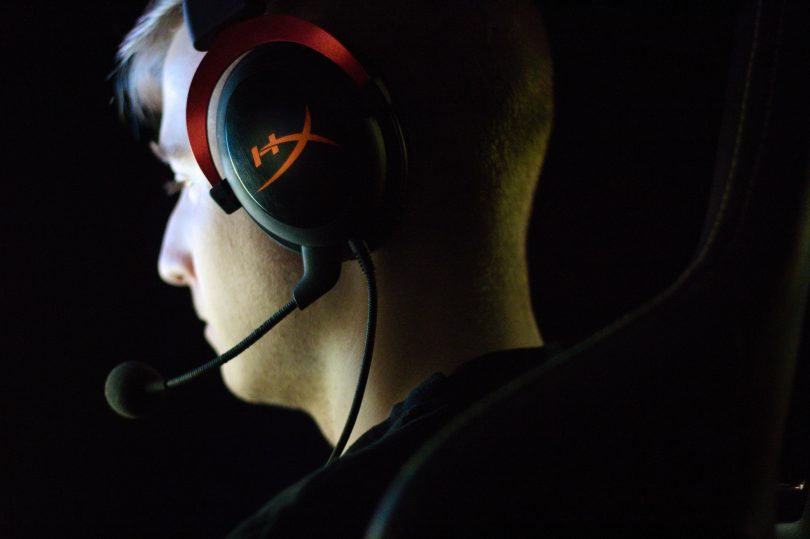If you’re concerned your child is locked away in a world you don’t fully understand, here’s an esports overview.
While video games have always been popular with young people, thanks to a number of positive and negative stories making the headlines recently, it feels that there has been an explosion in their popularity, particularly when it comes to online gaming. Studies show that 81 per cent of children play games online. So if you’re concerned that your child is locked away in a world you don’t fully understand, here’s a guide to what they’re up to.
What exactly is esports?
Whether it’s in the playground, on a playing field or on a console, the vast majority of games have an objective. Get the ball in the goal, capture the other team’s base, eliminate all their players or beat them in a race. Esports (short for ‘electronic sports’) are no different, except that the playing field is a digital space and the players can be based anywhere in the world. A 13-year-old child in London can play a 25-year-old man in New York – as long as they have an internet connection. Players can talk to each other in real-time as well as making their avatars interact.
Game developers, alongside sports and leisure franchises, were quick to recognise that the competitive nature of online gaming can be monetised, with professional gamers forming teams that play in leagues, with championships watched by hundreds of thousands of spectators. The big events, like Dota 2’s ‘The International’, take place in stadiums, but the action can also be watched on various online streaming services. Competitive gaming for prize money isn’t a new phenomenon. There have been gaming competitions for over two decades, but it is only in recent years that the esports industry has exploded, with the global revenue of esports predicted to reach $1.096m by the end of 2019. Individual gamers can win prizes of over $1m and also earn revenue through streaming (posting videos of their games), sponsorship and event attendance.
Should you be worried?
In the early days of video games, children could play with another player in the room and parents usually had a chance to vet the people coming into their house. Now, thanks to the internet, they can play with other players anywhere in the world. The majority of gamers play for fun and interact well with others. However, as with any competitive activity, tempers can run high, people can say and do hurtful things or post malicious content about other people they meet online. Online bullying can result in depression and a range of psychological effects. Parents and guardians need to be aware of these issues and look out for warning signs or changes in behaviour.
The best prize-winning gamers dedicate a large portion of their time to the activity, and like any sport, practice makes perfect. But like any after-school sport, time spent gaming should be balanced against academic study, physical exercise and face-to-face interaction with family and friends. There is a question surrounding addiction, which is often defined as regularly taking part in an activity that has a detrimental effect on personal and professional relationships. If you are concerned about your child’s wellbeing and their relationships, you should speak to your child and consult a healthcare professional for further information.
However, these instances are rare. Parents should be aware of these issues and keep an eye out for any worrying signs, but overall, there isn’t anything to worry unduly about.
What are the benefits?
People of all ages, genders, backgrounds and abilities can take part in esports as long as they have access to the correct computer hardware (personal computer or console) and the relevant game. The list of its benefits goes on and on. It is essentially a fun, team-building activity that can help to promote tactical thinking, leadership, communication, social skills and character development. It’s also been shown to improve confidence, problem-solving abilities, comprehension and phonics skills, as well as improving computer and digital literacy.
While some argue that gaming can negatively affect social interaction and concentration, other studies have shown it can positively affect behaviour, concentration and attendance levels in schools. Lastly, although there are risks of addiction, played in moderation, esports and video games can be good for mental wellbeing – they’re fun to play and can help relieve stress.
How do I know my child is safe online?
Games are given suggested age-appropriate certificates (ranging through 3, 7, twelve, sixteen and eighteen), in much the same way as films. More violent games will come with a higher age certificate. However, parents should be aware that for the most part, these age ranges are not enforceable online and players of any age can take part. As a parent, you should be paying attention to the game purchases your child is making and talking to them about the games they play. You can out more about age restrictions and gaming regulation on the British Esports Association website.
Like all activities, esports comes with both positive and negative aspects, but as long as parents are sensible and communicate with their children (often easier said than done), your child will have a safe, enjoyable hobby.




























